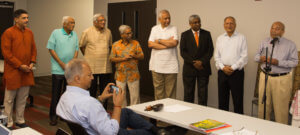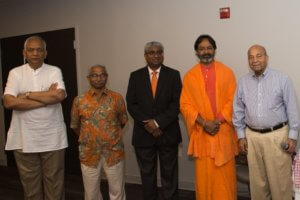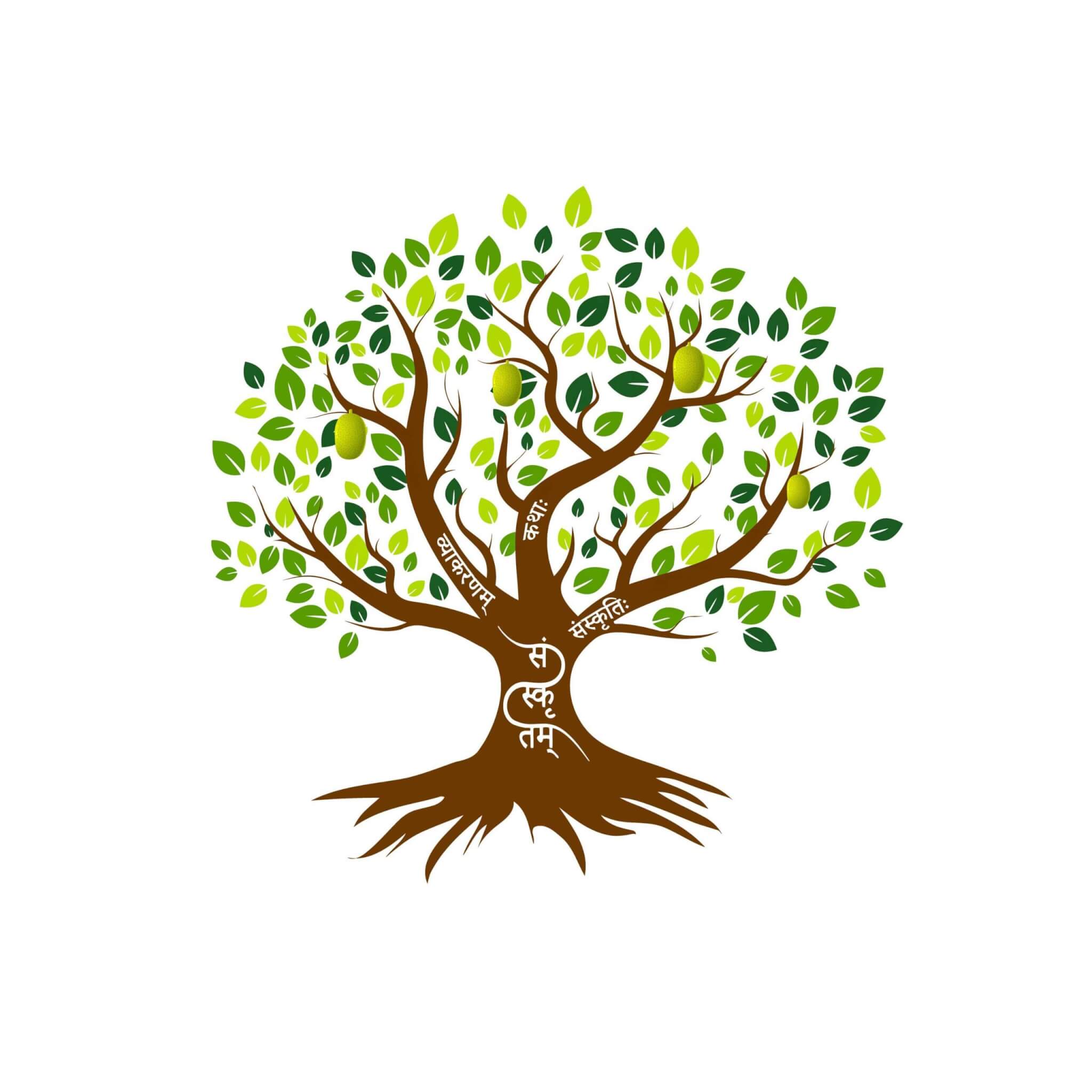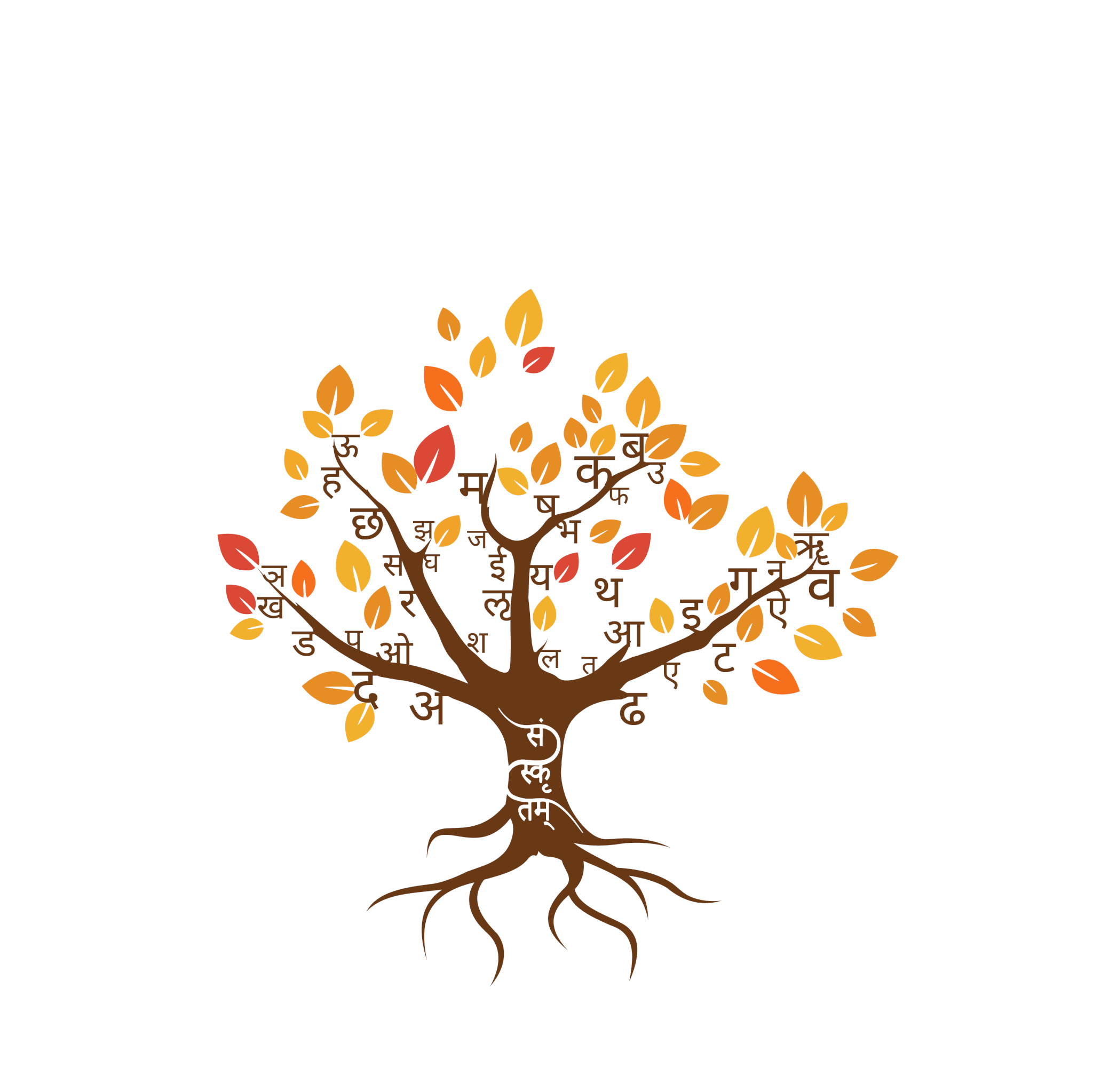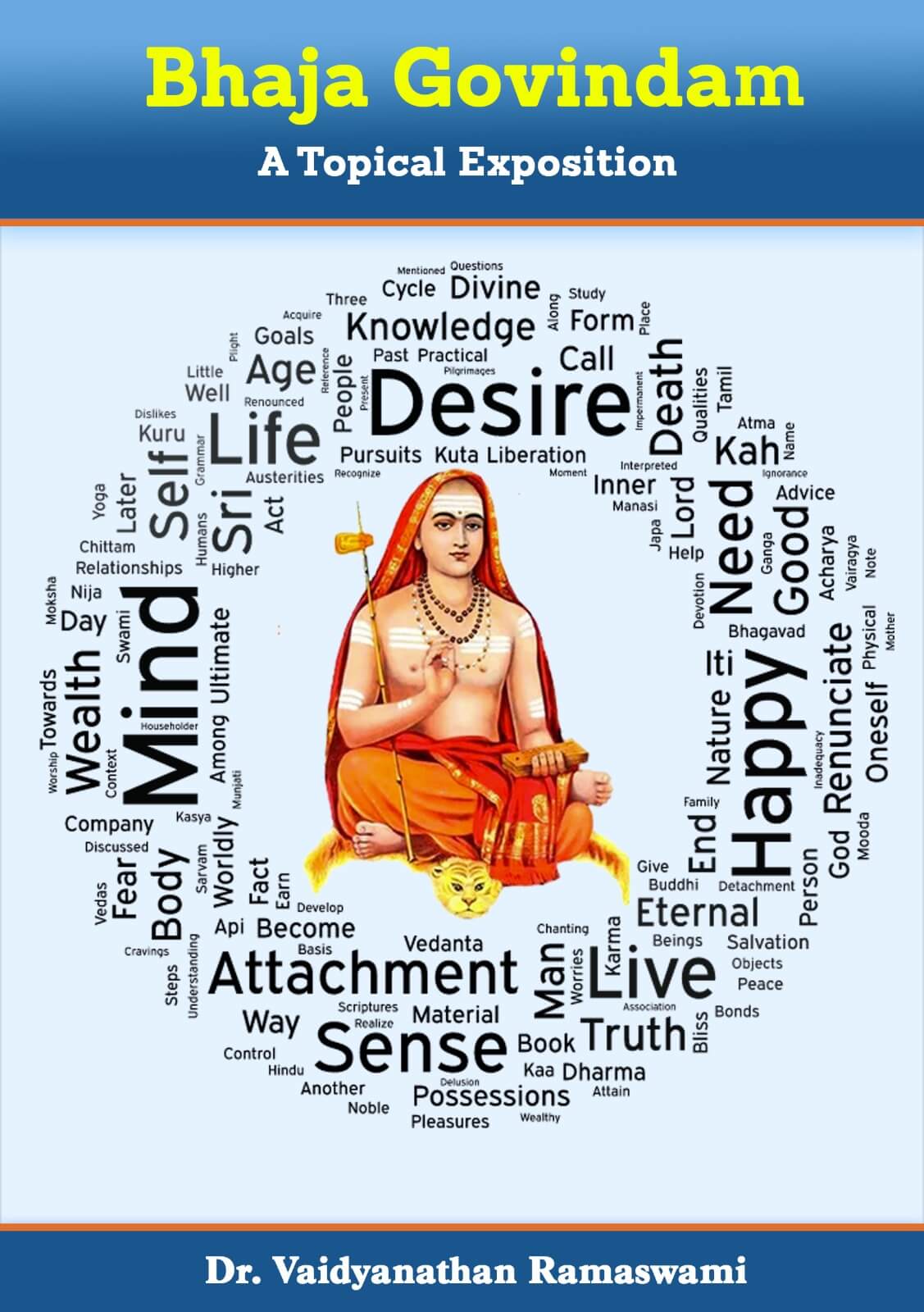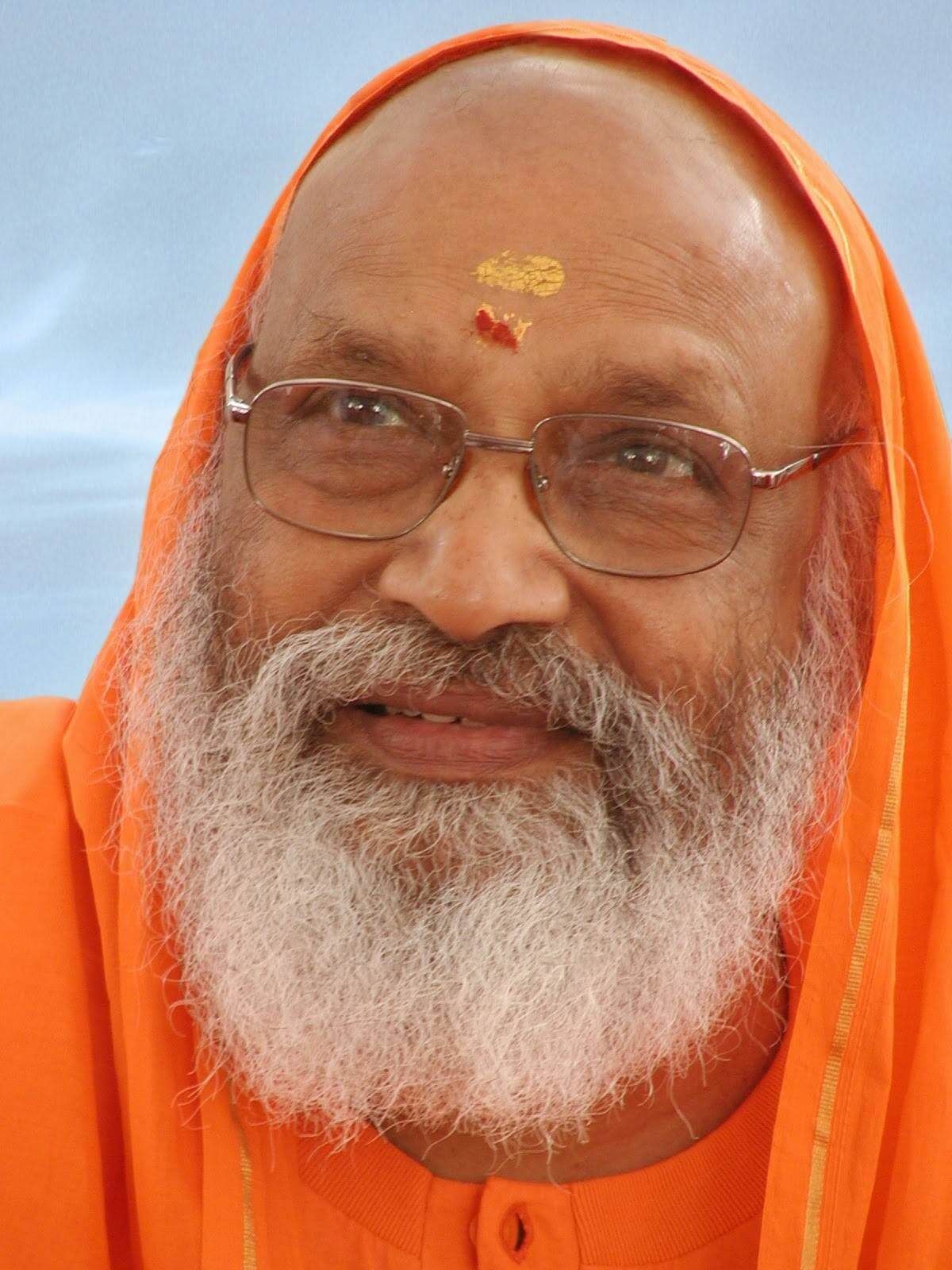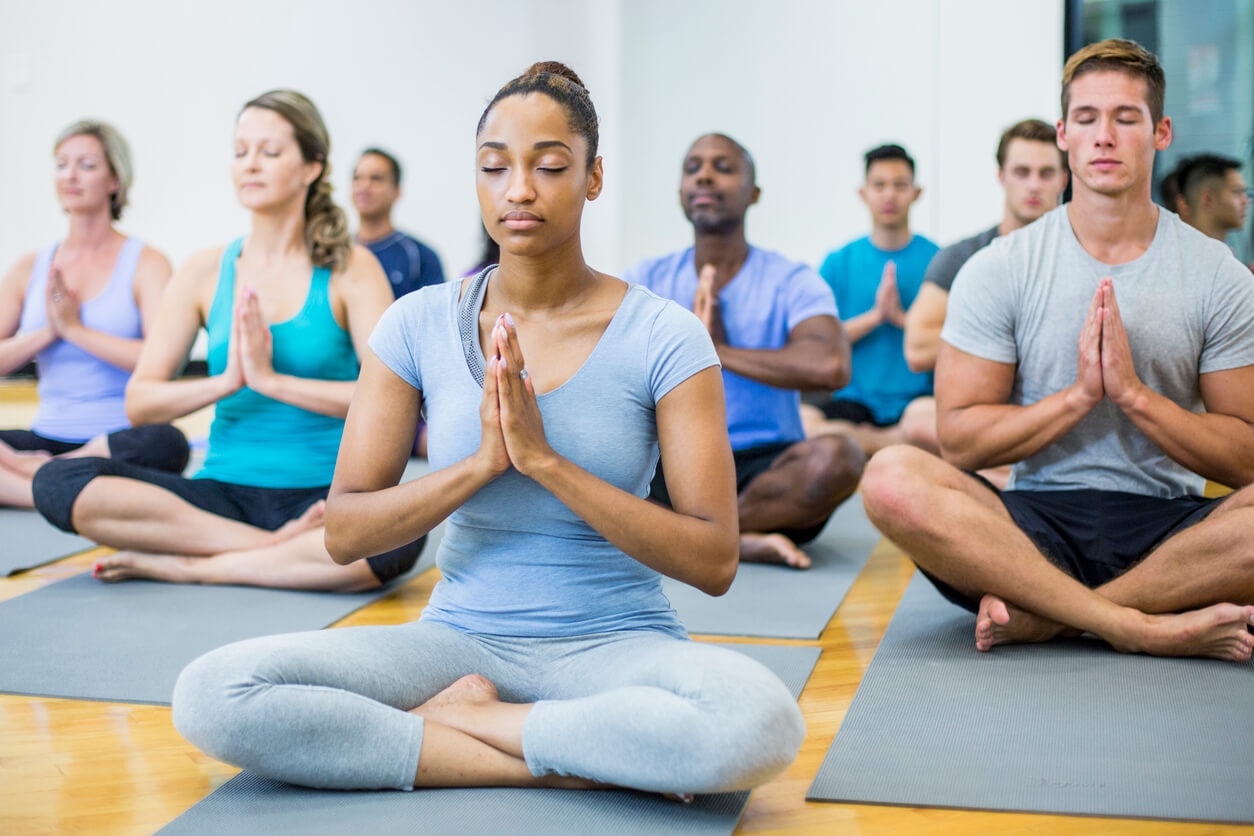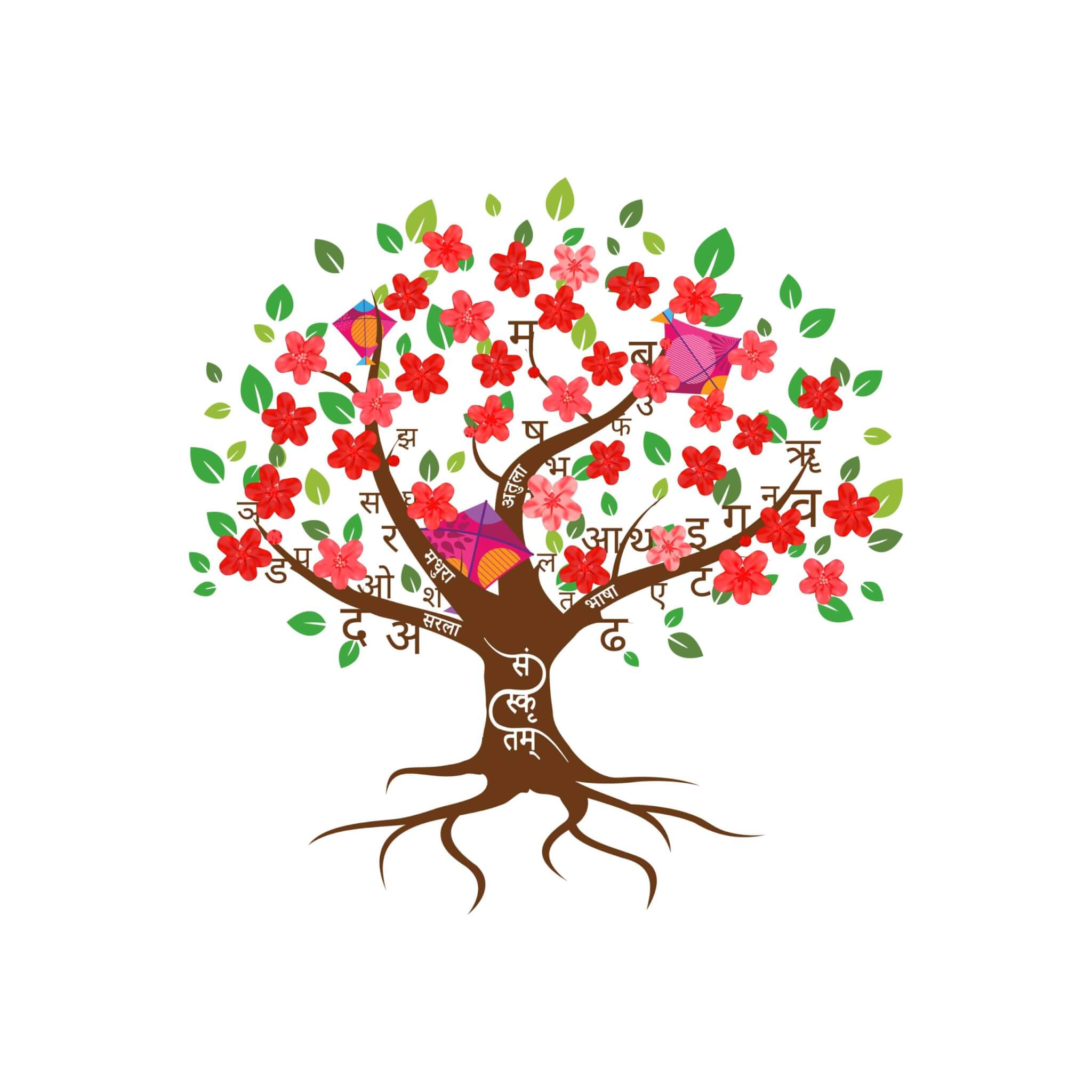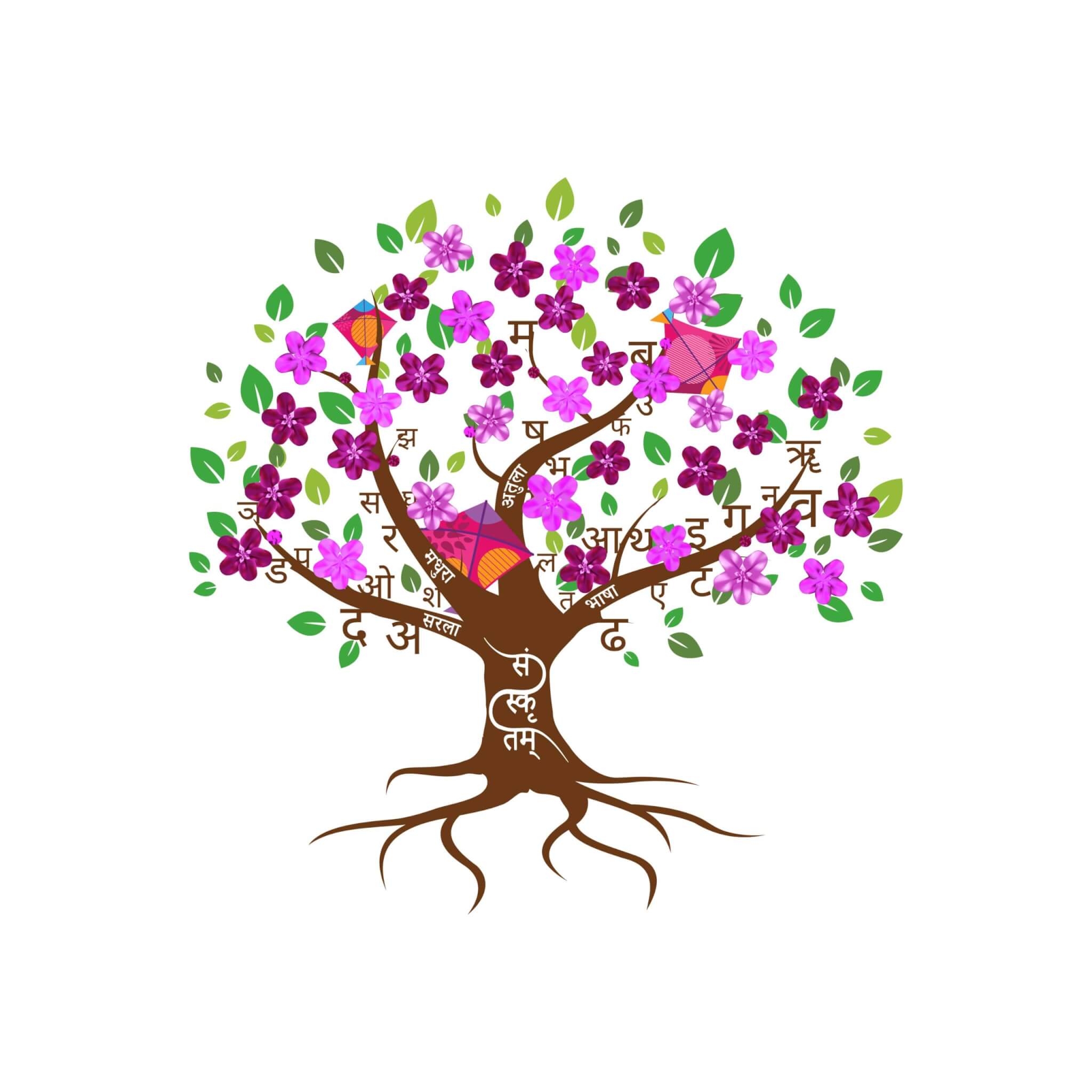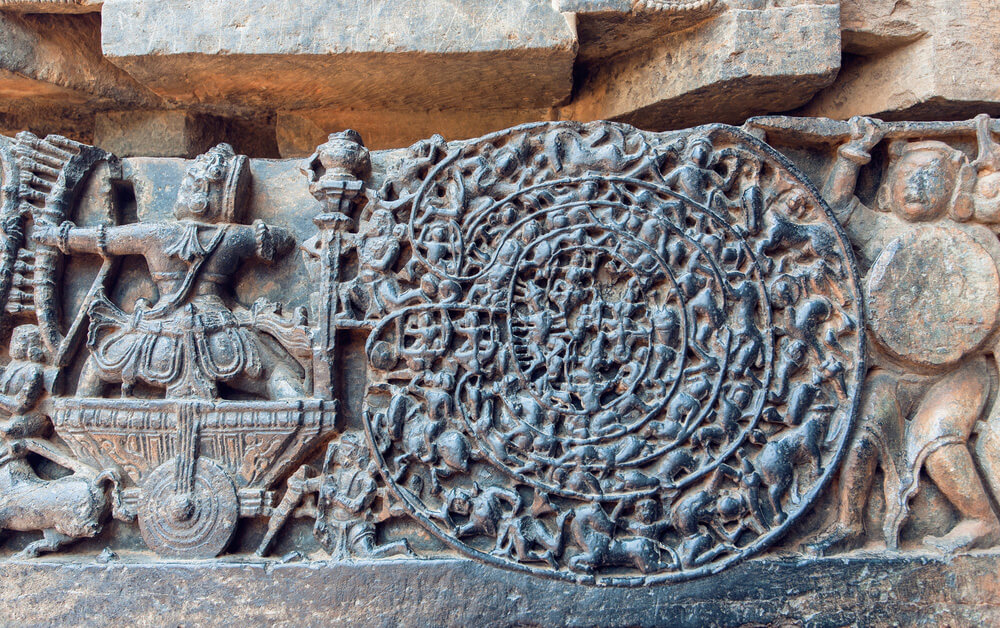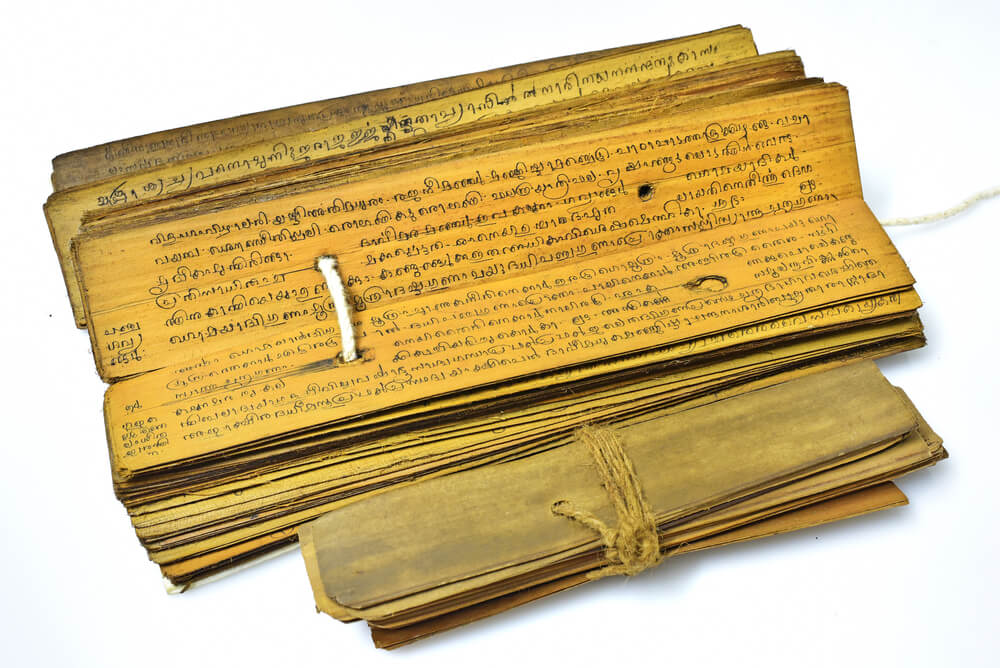Quarters / Semesters Offered: Fall 2020
Applied Vedic Science – Basic (Jyotish)
Applied Vedic Science – Basic Jyotish
Course Content:
This course provides a survey of the science and practice of Jyotish, through an overview of the key texts and contributions in the discipline. A primer text in Sanskrit which discusses the categories of this science and how they are interpreted to provide insights related to their influences at different levels is studied in this course.
In this course Basic Jyotish students will be able to:
- Understand the scientific/ mathematic relevance of astronomy as essential for the study of astrology.
- Understand the major contributors and their contributions to scientific thought in the Indic knowledge system.
- Observe how the basic astrological elements have been derived and interpreted in the Jyotish-sastra.
Area of Study: Sanskrit Studies
Required / Elective: Elective
Prerequisites: Completion of 12 Credit-Hours of Course work in the MA in Sanskrit6 limbs / Masters’ Certificate in Sanskrit
Faculty / Instructor: Dr. Dayananda Sharma
Start Date:
End Date:
Day:
Time:
Quarter Offered: Fall Quarter
Beginning Sanskrit – I
Beginning Sanskrit – I
Beginning Sanskrit – II
Beginning Sanskrit – II
Bhaja Govindam – A Topical Approach
Bhaja Govindam – A Topical Approach
Freedom and Reality: An Introduction to Advaita Vedanta
Advaita Vedanta
Learning Outcome:
- Effectively analyze the nature of the human problem and the scope of knowledge and action as means (sadhana) for solving it.
- Understand Advaita Vedanta’s epistemology and its relevance to the human problem.
- Gain clarity on the Advaita view of reality and non-duality.
- Learn the prerequisites for the knowledge of Advaita and the means to gain them.
- Recognize and analyze the differences between some modern and ancient interpretations of Advaita. and the traditional view of Sankara.
The vision of Advaita Vedanta is that one, non-dual consciousness is the content of you, the world, and the cause of the world. It is both immanent and transcendent and can be known by a human being who has equipped himself/herself with the necessary prerequisites. This knowledge, contained in the Upanisads, releases the individual from the problem of human suffering.
In this course we will explore the nature and substance of this liberating knowledge through key dialogues in some of the major Upanisads, using as a guide the commentary of Sankara, Advaita’s seminal exponent.
We will also explore the qualifications required for this knowledge and the prescribed means for acquiring them. In conclusion, we will examine some competing views on Vedanta, including modern interpretations. The course is designed to introduce in a comprehensive but accessible way, the vision of Advaita Vedanta.
Required/Elective: Required
Prerequisites: Must have completed or been concurrently enrolled in Orientation in Hindu Studies
Faculty/Instructor: Swamini Agamananda Saraswati
Area of Study: Hindu Studies Foundation
Start Date: July 17, 2022
End Date: September 18, 2022
Day: Sunday
Time: 09:00 am EST – 12:00 pm EST (6.30 pm IST – 9.30 pm IST)
Quarter Offered: Summer 2022
Holistic Yoga – 2: Deepen Your Yoga Practice
Holistic Yoga – 2 : Deepen Your Yoga Practice
Course Description
This course provides in-depth experience of holistic yoga, that integrates asana, pranayama, and meditation techniques for a sustained yoga practice.
In this course, we will dive into the practices of yoga, such as asana (postures) and pranayama (breathing practices), along with their concepts — through the lens of Patanjali Yoga Sutras.
The integrated approach to yoga is more than just a physical practice. It is a philosophy-based approach to viewing oneself and the rest of the world with a paradigm-shift. Holistic Ashtanga Yoga is an eight-limbed approach to yoga that synthesizes the traditional knowledge of yogic and vedantic texts, such as Patanjali Yoga Sutras, Hatha Yoga Pradipika, Bhagavad Gita, and other yogic and upanishadic texts, as a rich and comprehensive set of practices. In this course, we will experience the practices of yoga as a hands on experience while also understanding some of the concepts behind these practices.
In this course students will be able to:
- Learn in depth, the yoga practices of breath synchronized movements, asana, pranayama, and meditation along with their nuances.
- Understand the practice of Ashtanga Yoga such as asanas, pranayama, cleansing Kriyas, meditation, and relaxation
- Apply yoga practices and concepts to manage their physical, mental, emotional, and spiritual health.
Required/Elective: Elective
Prerequisites: Holistic Yoga- 1 Concept & Techniques, or Prior experience of yoga practice (at least 1 year) or teaching
Faculty/Instructor: Ashwini Surpur, Anil Surpur Sindhu Singal
Area of Study:- Yoga Studies
Days:- Batch 1 : Tuesday 6 pm EST – 8 pm EST & Saturday 10am – 1.15pm EST
Batch 2 : Wednesday 9 pm EST – 11 pm EST & Saturday 10am – 1.15pm EST
Start Date:- June 5, 2021
End Date:- June 30, 2021
Quarter Offered: Spring 2021
Holistic Yoga Teacher Training Foundations Intensive
How Hindu Dharma Transformed America
How Hindu Dharma Transformed America
Indian and Western Music Traditions – A Comparative Study
Indian and Western Music Traditions Course content:
While Hindu music traditions are diverse, the core of the various traditions originating in India stands out as unique with their emphasis on ‘the raga’ and ‘the tala’ and a core of commonality that is rooted in spirituality. Our goals are:
- To provide an overview of the various Art and Folk music traditions and the core of commonality across traditions (especially between the Hindustani and Karnatic traditions)
- To provide a nuanced understanding of the vocabulary used in Karnatic and Hindustani music traditions
- To provide a clear contrast between Indian and Western Musical Traditions.
Course Learning Objectives:
After completion of the course, the student should be able to:
- Discover the antiquity and spiritual basis of Indian music traditions;
- Articulate the differences between Indian and Western musical traditions;
- Obtain a clear understanding of the core of commonality across various Indian music traditions and their place in the Hindu way of life;
- Distinguish the commonalities and differences between Hindustani and Karnatic music;
- Discuss terminologies used in Karnatic and Hindustani music;
Class Structure
There will be a minimum of 1 contact hour every week. The class is structured in a way that promotes discussion and debate based on listening experiences and reading material. While the content being discussed in each class will be concluded within 60 minutes, the discussion time will be free format and can continue for an additional 30 minutes maximum. During the course, students will be required to submit two short essays. They need not be academic quality papers – but should be based on students’ self-reflection on what they have learned and assimilated so far.
Prerequisites: Enrollment into a Program of study
Faculty / Instructor: Dr. Kanniks Kannikeswaran
Required / Elective: Elective
Area of Study: Texts & Traditions
Start Date: TBD
End Date: TBD
Time: TBD
Day: TBD
Quarter Offered:TBD
Intermediate Sanskrit – II
Intermediate Sanskrit – II
Intermediate Sanskrit – III
Introduction to Vedas
Introduction to Vedas
Course content:
The course ‘Introduction to Vedas’ presents an overview of the central theme of the Vedas and their classification as Rig, Yajus, Sama, and Atharva and structural classification as Samhita, Brahmaṇa, Aranyaka, and Upanisad along with a brief introduction to the allied literature of the Vedas are discussed in this course. The Hindu philosophy of life and worldview that intrinsically supports diversity and universal wellbeing, which has enabled the Vedic culture to sustain itself in the face of considerable adversity is also explored.
Area of Study: Sanskrit Studies
Required / Elective: Required
Prerequisites: Admission to MA Sanskrit
Faculty / Instructor: Dr. Dhananjaya Rao
Start Date:
End Date:
Day:
Time:
Quarter Offered: Fall Quarter
Mahabharata III: The War Books
Managing Back Pain through Holistic Yoga
Managing Back Pain through Holistic Yoga
Course Description:
Yogic Management of Back Pain is a course on learning a holistic approach of healing modality involving yoga practices and concepts. In this course, students will explore the practices of yoga, such as asana (postures) and pranayama (breathing practices), along with the concept of ashtanga yoga and philosophy of yoga through the teachings of Patanjali Yoga Sutras and Bhagavad Gita. Healing is complete when the underlying cause of the disease is removed. This course attempts to bring to light, mind as the potential cause for psychosomatic and chronic diseases.
Yoga is a philosophy-based approach to viewing oneself and the rest of the world with a paradigm-shift to bring lasting happiness through two concepts — Abhyasa (practice) and Vairagya (letting go). The deep-rooted habitual thought patterns require persevering practice (abhyasa). This course attempts to build that perseverance through sustained practice techniques. Attachment to the worldly enjoyment and aversion to the inevitable pain and difficulties in life creates stress. This course attempts to build awareness of the subtle aspects of life that create such stress in the students.
This program covers 5 main curricular points:
- Learn yoga practices for the management of pain conditions.
- Stress and its effects on pain conditions, primarily back pain.
- Role of pranayama and meditation in bringing long-lasting relief from pain conditions.
- Learn about the framework of an integrated approach to yoga for pain management.
- Understand the basics of Ashtanga yoga and its application in wellness and chronic ailment.
Faculty: Shri N.V. Raghuram, Vinutha Kornaya , Ashwini Surpur, Anil Surpur
Area of Study: Yoga Studies
Program: Certificate Program in Hindu Studies / Community Education Program.
Required/Elective: Elective
Prerequisites: None
Start Date: 11 April 2021
End Date: 20 June 2021
Day: Sunday
Time: 07:00 pm EST -09:00 pm EST
Quarter Offered: Spring 2021
Nyaya-vaisesika Advanced
Nyaya-vaisesika Advanced
Course content:
This course introduces the ontology and classificatory schema of the merged system of Nyaya-Vaisesika as presented in the primer named Tarka-sangraha, which is reviewed with refined definitions and logical arguments using the Navya-nyaya terminology. Using a key commentary named Dipika, the course develops the system of definitions and logic, and the generation of the complex terminology and technical language which came to be regarded as a benchmark of intellectual expression across all Hindu sastras.
In this course students will be able to:
- Understand the ontological schema of the universe according to the empirical / realist school of thought in the Vedic systems of Philosophy.
- Recognize how definitions are improvised and enhanced to obtain faultlessly accurate descriptions of various entities in the universe and their characteristics.
- Ability to work with i.e. sort and define entities and attributes of other knowledge systems and work domains.
Area of Study: Sanskrit Studies
Required / Elective: Elective
Prerequisites: Completion of the Nyaya-Vaisesika Basic course
Faculty / Instructor: Prof M A Alwar
Quarter Offered: Summer Quarter







